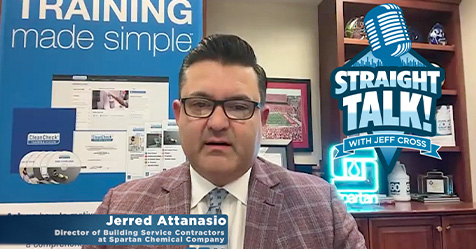Coronavirus Survives Longer on Cooler Surfaces
Australian study found SARS-CoV-2 virus can survive up to 28 days on smooth areas
There have been several reports that the SARS-CoV-2 virus can be found on surfaces for hours and up to three, six or nine days. But can coronavirus survive on cooler-temperature surfaces? A recent Australian study published in Virology Journal reports that coronavirus can survive 28 days at cooler temperatures on smoother surfaces.
The study was conducted by researchers from the Australian science agency Commonwealth Scientific and Industrial Research Organisation (CSIRO) at the high containment laboratory Australian Centre for Disease Preparedness (ACDP) in Geelong. Researchers wanted to determine if temperature had any effect on the virus longevity on smooth and rough surfaces. They decided to test the survival rates of the virus dried in an artificial mucous solution samples at three different temperatures on six common surfaces. The three temperatures chosen were: 20, 30, and 40 degrees Celsius (68, 86, and 104 degrees Fahrenheit). The six surfaces chosen were ones used often in public and personal areas: Australian polymer bank notes, de-monetized paper bank notes, brushed stainless steel, glass, vinyl, and cotton cloth. All experiments were completed in the dark to negate any effects of ultraviolet (UV) light since it can kill coronavirus. There was a single humidity set point at 50% maintained for each of the three separate temperature experiments.
According to the press release, the study results showed:
- The coronavirus survived longer (up to 28 days) at lower temperatures (68 degrees Fahrenheit).
- The virus survived longer on smooth surfaces like glass, stainless steel, and vinyl compared to rough, complex surfaces like cotton.
- The virus survived longer on paper bank notes compared to plastic bank notes.
For context, researchers said similar experiments with influenza A have found it survived on surfaces for up to 17 days.
“Establishing how long a virus really remains viable and infectious on surfaces enables us to more accurately predict and mitigate its spread, and to do a better job of coming up with solutions to protect people from being infected and getting sick,” said Dr. Gavin Macgregor-Skinner, director of the Global Biorisk Advisory Council® (GBAC), a Division of ISSA. “It’s very important that similar research continues on different aspects of virus survivability outside of the body and in the environment and that the results are shared widely and quickly as they become available.”
The study researchers said that although the results showed the virus could survive on common surfaces at lower temperatures, the main spread contributor is via aerosols and respiratory droplets from an infected person. The findings can also explain how the virus can survive and spread in meat processing and cold storage facilities.
“Real world results would likely be shorter than what we were able to show,” the lead researcher told Reuters. However, the study “really reinforces the importance of washing hands and sanitizing where possible and certainly wiping down surfaces that may be in contact with the virus.”


